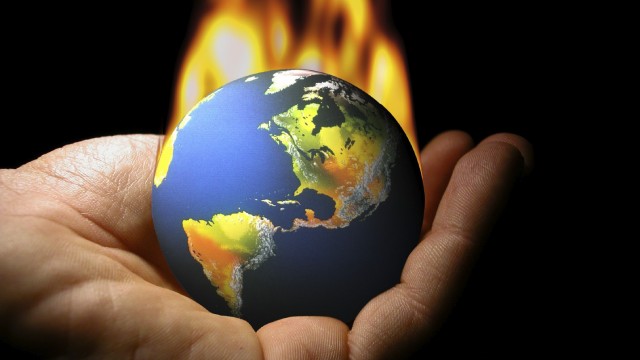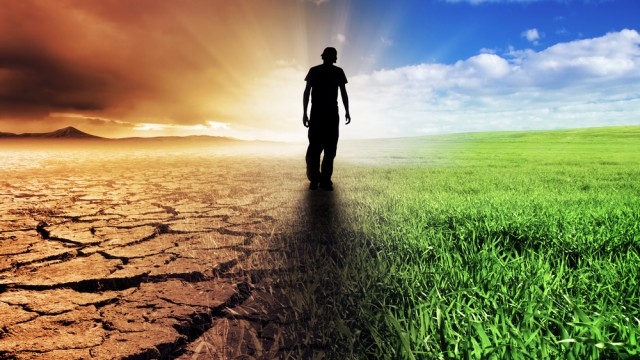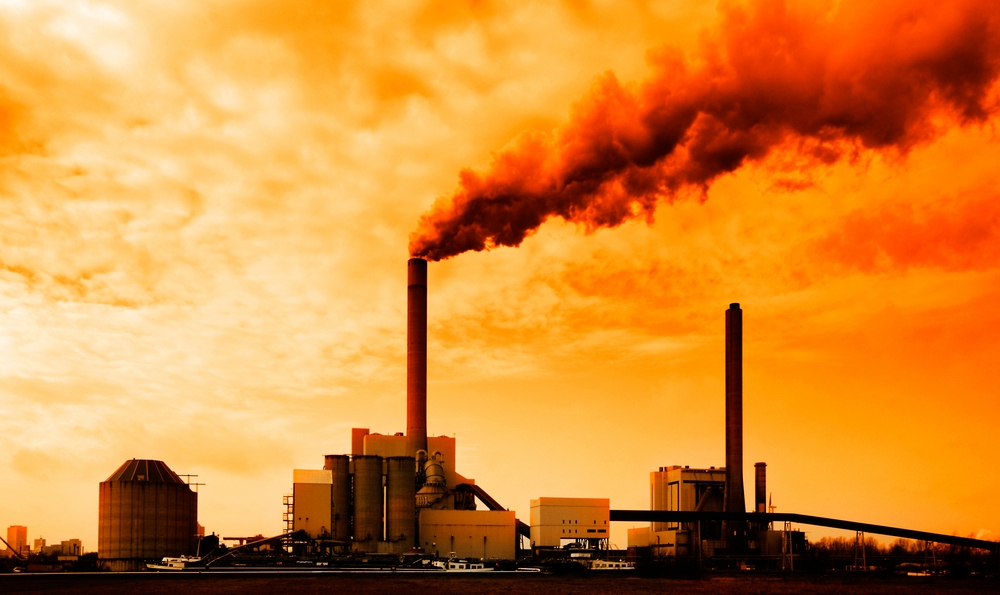Nothing in the history of civilization has compelled a revolution in human consciousness like the threat posed by climate change. “Nobody on this planet is going to be untouched by the impacts of climate change,” said Rajendra K. Pachauri, chairman of the UN Intergovernmental Panel that just came out with its most sobering and urgent findings to date.
 Indeed, nothing in the evolution of our species, short of the eruption of the super-volcano Toba in Indonesia that reduced humankind to a few thousand people in East Africa about 75,000 years ago, has posed as serious a threat to the future of humanity.
Indeed, nothing in the evolution of our species, short of the eruption of the super-volcano Toba in Indonesia that reduced humankind to a few thousand people in East Africa about 75,000 years ago, has posed as serious a threat to the future of humanity.
The urgency of the crisis cannot be overstated, yet the apathy and sense of helplessness in America is palpable. “Oh well, nothing to do now,” many people are muttering. That’s an unconscionable reaction, even and especially if ecological and economic collapse is inevitable.
The new UN report says, amongst other things, that “the ice caps are melting, sea ice in the Arctic is collapsing, water supplies are coming under stress, heat waves and heavy rains are intensifying, coral reefs are dying, and fish and many other creatures are migrating toward the poles or in some cases going extinct.”
A new finding of the report is that already we’re seeing a reduction in crop yields around the world from climate change, rather than the 10-15% increase necessary to keep up with population growth and ‘lifestyle changes.’ But as Jeffrey Sachs, a well-known economist and UN advisor said, “the pace of carbon dioxide entering the atmosphere has gone up…we’re on a trajectory for the 21st century that’s absolutely reckless, mind boggling.”
We can point fingers at China until the cows come home for good. But meat crazy “Americans have long led the world in consumption—we created the lifestyle that’s cooking the planet,” as one writer put it.
This challenge renders the 19th century nation-state games the world’s politicians are playing a tempest in a teapot. Yes, if Russian forces cross the border and are engaged by enraged Ukrainians, as grossly overmatched as they are, we’ll have a genuine crisis.
But as things stand, Putin is reading from Reagan’s playbook: Compel a nearly spent West to spend trillions more on their militaries, re-arming and building new bases in Eastern Europe and the Baltics, and thereby bring the bastards to their knees. If we go that way, it’s game over.
So let’s deal with real globalization rather than nationalistic globalization. That latter is an oxymoron referring to the morons who still believe that America provides the power that stabilizes the global marketplace, like British Empire did in the 19th century. The true worldwide web (the market) has to be a prime factor in tackling climate change, but the climacteric cannot be addressed much less redressed by a nationalistic mindset.
Climate change represents the confluence of three lifeless and life-leveling streams in human  consciousness—consumerism, nationalism and individualism. It also engages our core worldviews and spiritual lives, whether we’re inwardly alive, learning and growing, or are inwardly dead, apathetic and self-concerned.
consciousness—consumerism, nationalism and individualism. It also engages our core worldviews and spiritual lives, whether we’re inwardly alive, learning and growing, or are inwardly dead, apathetic and self-concerned.
As things stand, nations cannot and will not agree on a binding climate treaty by the last-chance-to-avert-complete-disaster deadline of December 2015, when they meet in Paris. The global crisis of climate change can’t be adequately addressed by piecemeal means, and the United Nations is inherently a piecemeal means because it’s constituted by nearly 200 separate, ‘sovereign’ nation-states.
Environmentalists in Canada (Canada!) are accused of “using funding from foreign special interests to undermine Canadian special interests.” What happened to Canada? In a phrase, it followed America over the moral cliff, and lost its soul.
President Obama will forsake any pretense of leadership with respect to his treasured international system if he agrees to let the Keystone pipeline be built. He will also be tarred forever by posterity for continuing to try to have things both ways at a moment when the only responsible choice was to drastically reduce carbon emissions.
So what is necessary to change course? How can individuals meet the looming climate catastrophe, when it is beyond the power of national governments and international institutions to do so?
With an extremely complex problem, the introduction of a new element, however small, at the right moment and in the right way, can have a huge impact on the whole system.
Human consciousness is no longer an innumerable set of nations and cultures. Rather it has become, like the net, one thing. A psychological revolution manifesting in an effective but non-power-holding global polity is urgently needed. It is therefore very possible. Whatever forms a global polity takes, it would supersede rather than supplant the international system, thereby acting in radical complementarity to it.
The word ‘holistic’ has become a cliché, but climate change will slap us silly until we wake up to the truth behind it. Seeing nature and the world as a whole, and acting accordingly, is the only way ahead. We can’t come from the same consciousness that got us into this mess and expect to get out of it. Nature is compelling us to radically change.
Martin LeFevre

